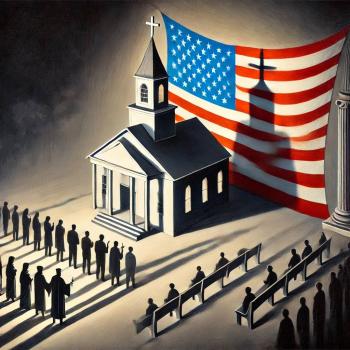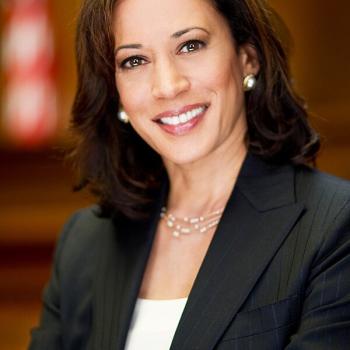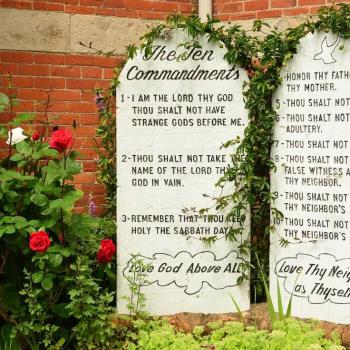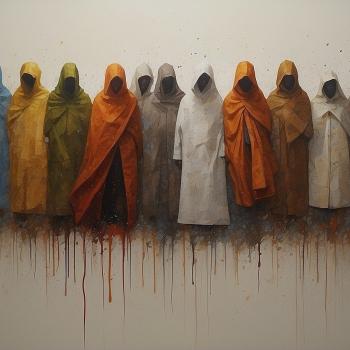What role did Christian faith have in the decisions of our earliest presidents? Did their faith guide them, or did the constitution constrain them? Why does it matter?

(Courtesy of Pixaby / raheel9630)
The religious beliefs of America’s earliest presidents are still relevant, and Presidents’ Day ’23 — Feb. 20 — is a good time to look at them. Why? Because the rise of Christian nationalism in the United States has renewed the debate over separation of church and state.
We need to understand the intentions of our founding presidents in order to make intelligent decisions in 21st century America. Thankfully, they wrote quite a bit about the relationship between church and state.
I planned to write a companion piece to this article that would focus on the faith or lack of faith of our 21st century presidents. The news of Jimmy Carter’s declining health led me to change directions. I decided the former president deserved recognition on Presidents’ Day ’23.
In the meantime, you can check out all of the U.S. presidents on the White House website (click here.) For the PBS website, which has a post called God in the White House. Read the post here.
Are Evangelicals Right?
Many Evangelicals like to say that America’s founding fathers had strong Christian faith and built a solid Christian foundation for our government and nation. It’s undeniable that Christian beliefs, values and traditions form the foundation of Western society.
But U.S. presidents weren’t as pious as modern conservatives would have you believe. The truth is that some of our earliest presidents were men of faith, but the Christian beliefs of others are highly suspect.
These presidents, along with other founding fathers, wanted to create a secular government that gave citizens the right to make their own choices about religion, and they wrote that right into the U.S. constitution.
What Does the Constitution Say?
The first clause of the constitution’s Bill of Rights says, “Congress shall make no law respecting an establishment of religion.” It isn’t a suggestion or an “if you feel like it” kind of statement. It’s quite clear.
On what basis do I make these statements? I’m not a historian or constitutional scholar, but I do have a double minor in history and political science, I can read and I know how to conduct research. I also devour books on American history – especially American presidents — the way some people binge-watch Game of Thrones. I have done so since fifth grade when a wonderful teacher introduced me to history. So, I’ve been at it for a while.
Are America’s Roots Explicitly Christian?
So I ask again: What role did Christian faith have in the decisions of our earliest presidents? Did their faith guide them, or did the constitution constrain them?
“This notion – that our country’s roots are explicitly Christian – is both foolish and wrong,” according to the Center for American Progress. The center is an independent policy institute that’s “dedicated to improving Americans’ lives through progressive ideas, as well as strong leadership and concerted action….” The center obviously has a point of view about religion in America, but historical facts support it.
“Christianity does not need to be endorsed by law or some fantasized re-interpretation of the Constitution in order to have meaning in people’s lives,” the center rightly points out. That’s a powerful statement.
The center poses these questions to Christians:
- Does it matter that only one of the 56 founding fathers was a member of the clergy?
- Does it matter that (President) James Madison objected to chaplains opening the proceedings of Congress with prayer?
- Will you stop reading the Bible if the Ten Commandments aren’t posted in courtrooms or the nativity scene in town squares shares space with a menorah?
- Do you believe that saying “Happy Holidays” instead of “Merry Christmas” is an attack on Christ?
“For Christians secure in their faith, the answer to all these questions should be a resounding ‘no’,” the center says. (Read more here.
Why Separate Church and State?
The framers of the constitution thoughtfully and deliberately separated church and state for very good reason. They were quite familiar with the centuries-old bloodshed associated with state religions in Europe, and they wanted no part of it.
The Thirty Years’ War in the 17th century was probably the worst example, with some eight million casualties resulting from military battles, disease and famine.
The war began between Protestant and Catholic states that formed the Holy Roman Empire, but eventually became more about political power than religion. By the end of the protracted war, the face of Europe had significantly changed.
America’s founding fathers wanted to hold our emerging nation together and knew that religious wars would tear it apart. They also wanted citizens to be free to believe or not believe as they wished without government interference or a majority religion that otherwise dictated religious beliefs.
The only way our early leaders could permanently protect religious freedom was to write it into the constitution. And they did.
What Did George Washington Really Believe?
As America’s first president, George Washington set numerous standards of behavior for future presidents, such as the tradition of serving no more than two terms. He did not, however, need to settle the issue of separation of church and state, as the U.S. Constitution had already decided the matter.
There have been several misconceptions about Washington’s religious beliefs.
- Washington was not an evangelical, despite modern attempts to claim him, according to the Mount Vernon website. Read more.
- Neither was he a Deist who believed that God created the world, set everything in motion, and stepped back to let events unfold without his interference, the site said.
- Washington was an Anglican, but his beliefs are hard to categorize. According to Mount Vernon, “He is known to have attended services at churches associated with the following Christian groups: Presbyterians, Quakers, Roman Catholics, Congregationalists, Baptists, and Dutch Reformed.”
- Washington did not limit his support of religious freedom to Christian denominations, the website said. He was committed to religious freedom for everyone and thought that religious intolerance led to dangerous divisions.
When various religious communities began writing to Washington following his inauguration, he told them that “the only being to whom Americans owed an explanation of their religious beliefs was God.”
Well said!
Was John Adams a Christian?
Our nation’s second president was John Adams. PBS describes him as “a self-professed ‘church-going animal’ who made no secret of his religiosity.’” Read more here. However, some modern-day Christians might have doubts when they learn more about his religious beliefs.
Adams was raised in the Congregational Church but became a Unitarian as an adult.
- He believed that superstition corrupted Christianity.
- He did not believe in the Trinity, which is a core belief of the Christian faith. That is, God exists in three persons: Father, Son and Holy Spirit.
- Perhaps more shockingly, President John Adams approved some surprising language in a treaty signed in the late 1790s, which said: “As the government of the United States of America is not in any sense founded on the Christian religion….” The next phrases are lengthy, but you can read them here. They don’t change the intent of the phrase in question.
The document was the Treaty of Tripoli, which attempted to protect American merchant ships from state-sanctioned piracy. Pirates had captured a number of American ships and taken crew members hostage. They targeted Christian crew members in particular. Undoubtedly, the statement denying America’s Christian roots was included to protect Christian crewmen. Nonetheless, President Adams approved the language.
Adams also seemed exasperated with the religion at times. In a letter to Thomas Jefferson, he said, “This would be the best of all worlds if there were no religion in it…. (But) without religion, this world would be something not fit to be mentioned in polite company – I mean hell,” per PBS.
What about Thomas Jefferson?
Thomas Jefferson, our nation’s third president, had strong beliefs regarding religion and government. He “believed that the new nation required complete religious freedom and separation of church and state,” according to the Thomas Jefferson Foundation.
“Many historians note that the broad diversity of ethnicities and religions in the 13 colonies meant that religious freedom was necessary if the union was to be successful,” the foundation said. Read more here.
While Washington was suspected of being a Deist, Jefferson actually was a Deist. He valued reason over Christian doctrines such as the virgin birth, original sin and Christ’s resurrection. But Jefferson also felt he was a “real Christian” who followed Christ’s teachings.
“For Jefferson, it was the moral message of Jesus, not claims of his birth, death and resurrection, that lay at the center of the Christian faith,” according to a PBS documentary called God in the White House. Read more here.
Jefferson famously created his own version of the Bible. Using a razor, he cut and rearranged verses from the four Gospels, placing them in chronological order and removing statements about Christ’s supernatural powers. He also focused on Christ’s words, given his belief that the Apostle Paul’s writings muddied the waters.
Our third president apparently intended to “reduce the Gospels to their core message,” according to Peter Manseau, curator of religion at the Smithsonian’s National Museum of American History. Read more here.
I daresay many so-called Christians in the modern world would call Jefferson a heathen.
He Said, She Said?
Jefferson “made defense of liberty the hallmark of his career. In 1776, he wrote the Declaration of Independence, and the following year, introduced a Bill Concerning Religious Freedom to the Virginia Legislature,” according to God in the White House. Read more here.
“In 1787, he urged his friend and colleague James Madison to amend the Constitution to include a written guarantee of religious liberty,” which Madison did. Madison, by the way, succeeded Jefferson as president.
That well-known constitutional scholar GOP Rep. Lauren Boebert is one member of Congress who disagrees with many of our early presidents including Washington, Jefferson and Madison.
“I’m tired of this separation of church and state junk,” she has said. She has insisted that the constitution does not mandate such separation and has even declared, “The church is supposed to direct the government,” according to The Hill, a digital media organization based in Washington, D.C.
Should Boebert read the Constitution, she would be hard-pressed to find anything that gives the church power over the government or vice versa.
She also neglects to tell us which “church” should direct the government. The Roman Catholic Church? The Southern Baptist Convention? The United Methodist Council of Bishops? Personally, I defer to our early presidents on the matter at hand.
What Were James Madison’s Beliefs?
Our nation’s fourth president, James Madison, was Anglican, but we know little about his personal religious beliefs. We do know that he wrote separation of church and state into the constitution.
As a young man, he was aware of the serious problems that existed between the established Anglican church and people of other denominations.
According to God in the White House, Madison “was outraged to discover that a number of Baptist ministers had been thrown into jail for preaching without licenses and committed himself to fighting for liberty of conscience, which he equated with religious liberty.”
“That diabolical, hell-conceived principle of persecution rages among some,” he wrote, “and to their eternal infamy, the clergy can furnish their quota of imps for such business.” Learn more here.
Madison’s home state of Virginia “struggled to define the relationship of church and state” for a decade after Thomas Jefferson drafted a Bill for Establishing Religious Freedom in 1776 or 1777.
Madison – like Jefferson – was a Virginian who fought hard for religious freedom. He made “a brilliant argument for liberty” in a document that he anonymously circulated throughout the colony of Virginia, according to God in the White House. He also reintroduced Jefferson’s bill on religious freedom to the Virginia assembly, and it passed in 1786.
“Following Virginia’s model, the Constitution gave the federal government no authority over religion,” the documentary reiterated.
Washington, Adams and Jefferson said a great deal more about their personal religious beliefs than Madison did. Consequently, it’s left to historians to wonder “whether Madison was an intellectual who was interested in the policy implications of religious liberty or a private man with a religious belief that he did not feel the need to defend,” per the documentary.
What role did Christian faith have in the decisions of our earliest presidents?
Christianity no doubt influenced them, but America’s first four presidents believed in religious freedom to the point that they supported its inclusion in the U.S. Constitution.
They weren’t interested in protecting Christianity. It was overwhelmingly the country’s dominant religion and didn’t need protection. Rather, they wanted to ensure that all citizens have a right to make their own decisions about religion without interference from the government.
Although we cannot truthfully say that America was founded on Christianity, we can say that our nation was founded on religious freedom. As U.S. citizens, we have the right to believe what we believe and practice our religion as we see fit. That’s huge.
What’s Next?
My next post looks at the legacy of President Jimmy Carter as it relates to his faith, his beliefs about separation of church and state, and his accomplishments as a former president.
Stay tuned, as they say.













